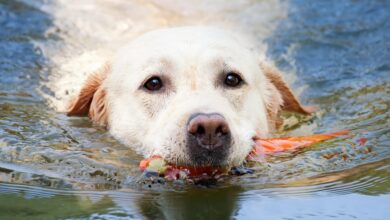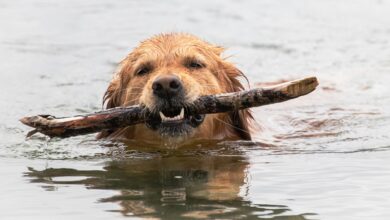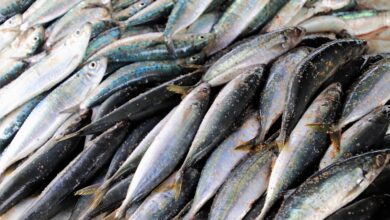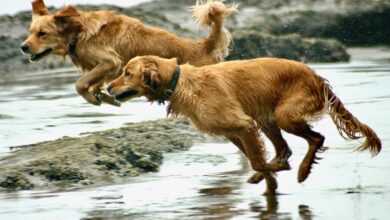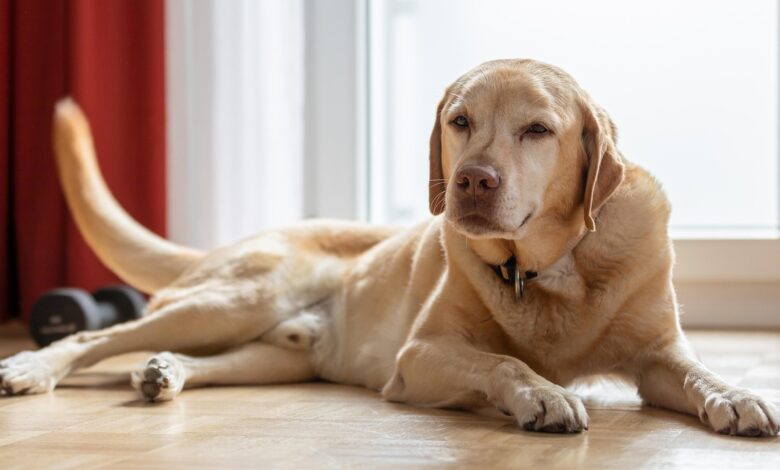
Don’t leave your dog in discomfort
Labrador Retrievers and other types of retrievers can be prone to anal gland problems, just like many other dog breeds. These issues can be uncomfortable and often lead to behavioural signs of distress if not addressed. Anal glands, also known as anal sacs, are small glands located just inside a dog’s anus. They produce a smelly secretion that is typically used by dogs to mark territory or communicate with other animals. However, when these glands become impacted, infected, or otherwise problematic, they can cause significant discomfort and health issues for your dog.
Why Are Labradors and Retrievers Prone to Anal Gland Issues?
Several factors make Labradors and Retrievers more prone to anal gland problems. These factors include breed tendencies, diet, and lifestyle.
- Breed Characteristics: Labradors and Retrievers are known for their higher risk of developing anal gland issues compared to other breeds. It is thought that their larger size and specific body type can affect the function of the anal glands. Additionally, these dogs are often prone to being overweight, which can further exacerbate issues with their anal sacs.
- Diet and Digestive Health: A poor diet that is low in fibre can result in softer stools that don’t provide enough pressure on the anal glands during elimination. Without the natural “squeezing” effect from normal bowel movements, the anal glands may not express themselves properly and can become impacted.
- Obesity: Overweight Labradors and Retrievers are at a higher risk for anal gland problems because excess weight can lead to pressure around the anal area, causing the glands to become compressed and unable to express naturally.
- Lack of Regular Exercise: Lack of physical activity can contribute to obesity and poor digestion, both of which can increase the likelihood of anal gland issues in Labradors and Retrievers.
Common Anal Gland Problems
Labradors and Retrievers can experience various anal gland problems. Some of the most common include:
Impacted Anal Glands: This is when the anal glands fail to express naturally and become clogged or blocked with their secretion. When the glands become impacted, they can cause discomfort, leading to your dog scooting or licking their rear end excessively.
Infected Anal Glands: If the impacted glands are not addressed, they can become infected. Signs of infection include swelling, redness, pain, and the presence of pus or a foul smell. If left untreated, the infection may worsen and lead to abscesses, which can cause even more serious health issues.
Anal Gland Abscesses: An abscess occurs when the infection causes the anal gland to rupture or form an abscess filled with pus. This is a painful condition that may require surgical intervention to drain the infection.
Signs That Your Labrador or Retriever May Have Anal Gland Problems
It’s important to watch for the following signs that may indicate your Labrador or Retriever has an anal gland problem:
Scooting: If your dog is dragging their bottom along the ground, this is often a sign that their anal glands are impacted and need attention. Scooting can provide temporary relief as your dog tries to express the glands themselves.
Excessive Licking or Biting of the Rear End: Dogs with anal gland issues may lick or bite at their bottom to alleviate discomfort.
Strong Odour: A foul, fishy smell from the rear end is a common indicator that the anal glands are impacted or infected. This odour can be quite noticeable.
Difficulty Defecating or Pain While Defecating: If your dog seems to be straining or having trouble defecating, this could be a result of anal gland issues.
Swelling or Redness: If you notice swelling, redness, or any discharge near your dog’s anus, this could signal an infection or abscess in the anal glands.
How to Help Your Labrador or Retriever with Anal Gland Problems
There are several ways to help your Labrador or Retriever with anal gland problems, and in some cases, these issues can be prevented or resolved with simple at-home care, veterinary intervention, and natural remedies.
1. Regular Anal Gland Expression
One of the most effective ways to help dogs with anal gland issues is through regular anal gland expression. This involves manually expressing the anal glands to relieve impaction. While some dogs naturally express their glands through normal bowel movements, others need help.
However, many dog owners believe regular expressing can cause scarring.
“Many dog owners prefer to use natural supplements to help their dog use the toilet in a more natural way. Psyllium husk has been said to help as has apple cider vinegar. Using coconut oil in a diet also seems to help dogs that need a little bit of help in the loo department,” said Who Adores Labradors Editor, Kim Latham.
Professional Expression: It’s recommended to have your dog’s anal glands expressed by a veterinarian. The procedure is quick, painless, and involves gently applying pressure to the glands to release the built-up fluid.
Increase Fiber Intake
A diet rich in fibre can help regulate your dog’s bowel movements and promote the natural expression of the anal glands. Fiber helps to bulk up stools and ensure that they are firm enough to put pressure on the anal glands when your dog defecates.
High-Fiber Dog Food: Choose high-quality dog food with added fibre. Look for dog foods that include ingredients like pumpkin which can help improve stool consistency.
Fiber Supplements: If your dog’s diet already includes high-quality food but still suffers from anal gland problems, you can add a fibre supplement to their diet. Consult your vet for recommendations on safe fibre supplements.
Maintain a Healthy Weight
As mentioned earlier, obesity can contribute to anal gland problems in Labradors and Retrievers. Keeping your dog at a healthy weight is crucial in preventing issues like anal gland impaction. Make sure to provide a well-balanced diet and encourage regular exercise to maintain a healthy weight.
Exercise: Regular walks, playtime, and activities like fetch can help your dog maintain a healthy weight and keep their digestive system functioning well. Engaging in activities that also provide mental stimulation can prevent boredom, which might lead to overeating or lack of exercise.
Hydration
Make sure your dog has access to clean, fresh water at all times. Proper hydration helps maintain healthy bowel movements, which in turn helps to support the proper function of the anal glands.
Natural Solutions for Anal Gland Health
In addition to dietary changes and regular vet care, there are several natural remedies that can help alleviate anal gland issues in Labradors and Retrievers.
Probiotics: Adding probiotics to your dog’s diet can promote gut health, improving digestion and reducing the risk of gastrointestinal issues that can contribute to anal gland problems. Probiotics help maintain a healthy balance of bacteria in your dog’s digestive system, which supports optimal stool consistency and overall health.
Coconut Oil: Coconut oil contains natural antimicrobial and anti-inflammatory properties. It can be used both topically and internally to support anal gland health. Adding small amounts of coconut oil to your dog’s food (about 1/2 teaspoon per 10 pounds of body weight) can help with stool formation. Additionally, applying a small amount of coconut oil to the affected area can help soothe irritation.
Apple Cider Vinegar: Diluted apple cider vinegar has natural antibacterial properties and can help balance your dog’s pH levels. Adding a teaspoon of apple cider vinegar to your dog’s food or water may help prevent infections in the anal glands and promote overall digestive health. Always ensure the vinegar is diluted to prevent irritation.
Pumpkin: Adding plain canned pumpkin (not the spiced pie filling) to your dog’s diet can provide natural fibre to support proper stool formation and promote healthy anal gland function. A small spoonful mixed into your dog’s food can make a noticeable difference in their bowel movements.
Herbal Remedies: Some herbs like dandelion root, aloe vera, and slippery elm are known to help soothe inflammation and support digestive health. Always check with your veterinarian before introducing any new herbal remedy to ensure it’s safe for your dog.
Addressing Infections
If your Labrador or Retriever develops an infection in their anal glands, your veterinarian may prescribe antibiotics or recommend a topical treatment to reduce swelling and manage the infection.
Abscess Drainage: If an abscess forms, your veterinarian may need to drain it surgically. This is important to avoid the spread of infection and relieve your dog’s pain.
Monitor and Prevent Recurrence
After your dog’s anal glands are expressed or treated, keep a close eye on any signs that the issue may recur. Regularly check your dog’s rear end for signs of swelling or discharge. If anal gland problems persist, your vet may recommend a more detailed treatment plan, which could include more frequent expressions or additional diagnostic tests to rule out underlying health problems.



